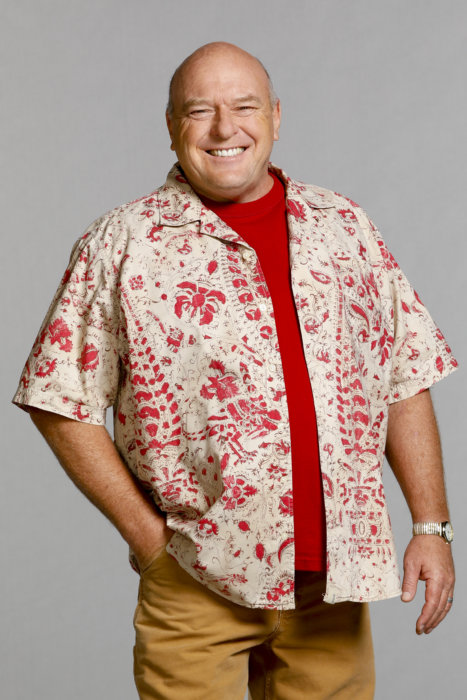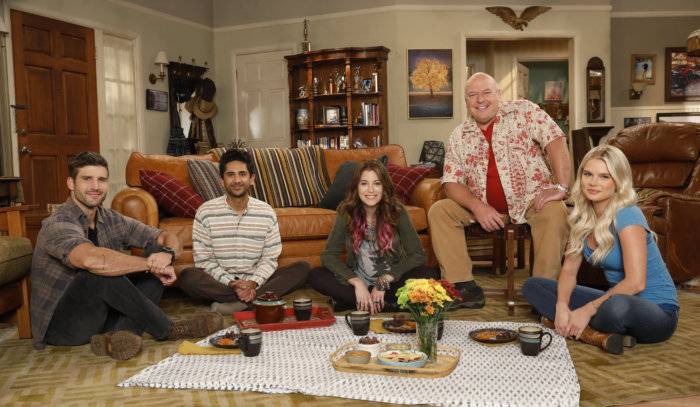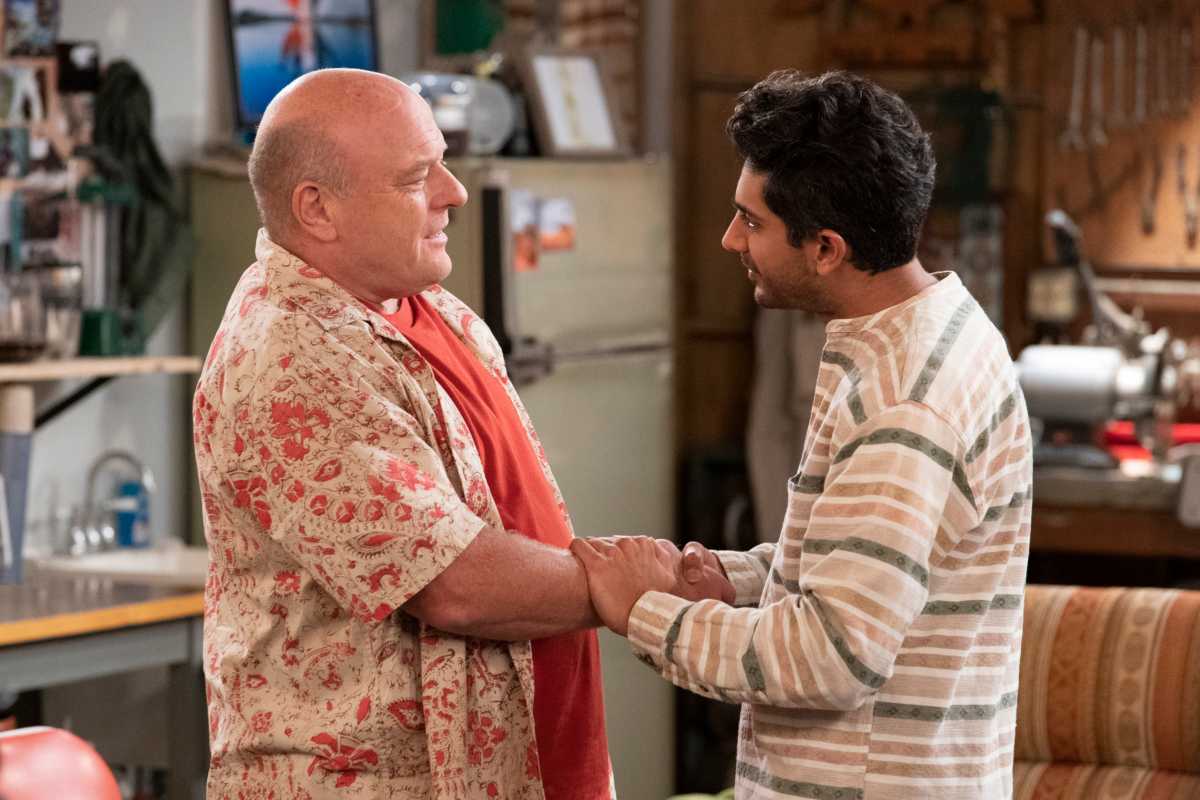The harder subjects in life seem to be a bit more easy to swallow when paired with some comedy. Chuck Lorre, a staple in the sitcom world, has certainly showed he can blend harder plot lines with comedic nuances with shows such as ‘Mom’ and now ‘United States of Al.’ In the new show on CBS, a Marine combat veteran (Parker Young) returns home to Ohio to live with his dad (Dean Norris). Along with Riley comes Al (Adhir Kalyan), the interpreter who served with his unit in Afghanistan and has just arrived to start a new life in America. It’s a multi-camera sitcom, something Lorre has become a household name for, but it’s also based on real and actual stories from soldiers and interpreters themselves.
The show has received some feedback on both ends of the spectrum due to casting, but the creators of the show have stuck by the fact that they made representation and the real stories of people come to life through a comedic viewpoint.
For Dean Norris, who plays the patriarchal figure Art in the show, that blend of real life with lighter touches keeps the focus on what we all want and need during good times and bad—a family, biological or not. Norris delved into what went into working on ‘United States of Al.’

What was it about this show that intrigued you to want to sign on?
Well, first of all, I wanted to do a comedy. I’ve never done a sitcom before besides ‘Big Bang Theory,’ which Chuck Lorre called me and asked me to do. When I found out that ‘Claws’ was ending, literally a few weeks after that, they called and said they had a part in this show. I wanted to do a sitcom that had a little something to it, and when I read it, it was fantastic. I loved the subject of the military dealing with the Afghan interpreter and felt that it was really a show that could be important as well as funny—which is something that Chuck Lorre has been moving into with ‘Mom’ and alcohol addiction and things like that. So, it felt right, it looked like a character I could do and it looked like fun.
What do you have to say about acting on a multi-camera sitcom versus a show like ‘Breaking Bad?’
Yeah, I mean it’s really a completely different animal. As a person in the profession, and there’s no particular reason to do this, I just think it’s fun to say, hey, there’s a whole new thing I’d like to try my hand at. I got lucky enough to do a great cable drama show like ‘Breaking Bad’, I think it would be really interesting to say I also got to do a major network sitcom with the best of the best, Chuck Lorre. It’s a feather in the cap.
What can you tell me about your character in the show?
He is a veteran himself, he’s widowed and his son, Riley, comes home from the war in Afghanistan as a Marine and he’s having a lot of problems with PTSD and issues with his marriage. Riley ends up living with his dad, me, in the garage, and I also have my daughter who lost her husband in the war… She’s going through a lot of issues and she lives with me as well. I wouldn’t say it’s dysfunctional, because he’s really kind of the glue holding his two kids together. They basically come home to the nest and Art has to kind of be the guy that’s there helping them get their lives back together.
This being based on true stories of Afghan interpreters and soldiers, why do you think a sitcom is the right place for this plot?
Well, there could be many places for this plot. But I think when you look back at the history of sitcoms, they’ve been really some of the major engines of change in our culture. Somehow we as Americans are able to understand and relate to certain issues if they’re done with some comedy. I think that that is what the idea of this show was—to address a pretty serious issue and maybe an issue that hasn’t been fully resolved or dealt with. It might be too heavy-handed to come at it with a drama or something else or somebody else could make that choice to do that. But I think having CBS and Chuck Lorre do it on a sitcom really gets into the heart of the American culture.
Were there any takeaways from the show for you personally?
There’s a lot. First of all, the main subject to be quite honest with you, I didn’t know that there was an interpreter issue in Afghanistan. These are people who really put their lives in danger to help American soldiers and we left them over there. When you start reading about that, it’s quite profound and I hope if anything that this could shed a little light on that… To get quicker access to our country to save their lives, that would be fantastic. In addition, I think it’s an interesting take on the fish out of water situation where you have this Afghani interpreter living in America and the humor comes from him looking at America and going wow, what a strange place. He’s really the guy who’s looking at us and going oh, this is really a way to live? For example, there’s an episode where he goes to meet the neighbors, and we go what? We don’t talk to the neighbors, and he’s like in Afghan all of the neighbors know each other and we help each other. There’s a lot of elements like that where you see the humanity and the lack of humanity in American culture that maybe could be helped or at least be addressed or looked at.

Do you think the themes of family and needing connection displayed in the show will resonate with audiences more now after the pandemic?
I think that could be a true thing, yeah. Really, at the heart of any great comedy is human beings helping each other out and helping us deal with just getting through life. Really, when you get beyond the story of the interpreter beyond the issue of [him] coming to America, it’s really about friends and family helping each other. My daughter in the story is really hurting, and so is my son. Through all of us somehow coming together and supporting each other, we help each other get through these really hard days. I think that’s something that’s relatable to anybody whether they’ve been in war or not—having a family get you through hard times, and hard relationships and down times in your life, and we do it with humor. I think that’s something that anybody in the audience can relate to and understand.
Catch ‘United States of Al’ Thursdays at 8:30 p.m. on CBS.






























